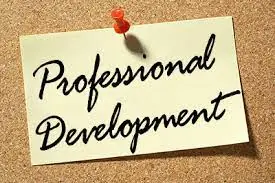In the fast-evolving landscape of various industries, staying ahead is not just an ambition but a necessity. Professionals across diverse sectors are increasingly recognizing the significance of continuous learning, and one avenue that stands out is the realm of Professional Development Hours (PDH) courses. In this comprehensive guide, we delve into the world of PDH courses, exploring their importance, types, benefits, and how they shape the future of professional growth.
I. Introduction
A. Definition of PDH Courses
PDH courses, or Professional Development Hours courses, are designed to enhance the skills and knowledge of professionals in various fields. These courses offer a structured approach to learning, ensuring that individuals stay updated with the latest industry trends and innovations.
B. Importance of Professional Development Hours (PDH)
In an era where expertise is a moving target, PDH courses provide a means for professionals to maintain relevance and competence. They are not just about fulfilling regulatory requirements; they are a proactive step towards personal and career development.
C. Overview of PDH Courses in Various Industries
PDH courses span across industries, including engineering, healthcare, information technology, and more. This broad applicability makes them a versatile tool for professionals seeking continuous improvement.
II. Why PDH Courses Matter
A. Compliance with Licensing Requirements
Many professions mandate a certain number of PDH credits for license renewal. Meeting these requirements is not only a legal obligation but also ensures that professionals are up-to-date with industry standards.
B. Career Advancement Opportunities
PDH courses provide a pathway for professionals to distinguish themselves in their fields. Employers often value candidates who invest in their development, making PDH courses a strategic move for career advancement.
C. Continuous Learning and Skill Development
The dynamic nature of today’s job market demands a commitment to continuous learning. PDH courses offer a structured approach to acquiring new skills, ensuring professionals remain adaptable and resilient.
III. Different Types of PDH Courses
A. Technical PDH Courses
These courses focus on the technical aspects of a profession, providing in-depth knowledge and skills related to specific tools, technologies, or methodologies.
B. Non-Technical PDH Courses
Non-technical PDH courses cover areas such as leadership, communication, and ethics. They contribute to the holistic development of professionals beyond their technical expertise.
C. Industry-Specific PDH Courses
Tailored to the unique requirements of different industries, these courses address specific challenges and advancements within a particular sector.
IV. PDH Requirements Across Industries
A. Engineering and Architecture
Professionals in engineering and architecture often need PDH credits to renew their licenses. Courses may cover topics like new design methodologies, safety standards, or emerging technologies.
B. Healthcare and Medical Professions
In the healthcare sector, PDH courses may focus on the latest medical advancements, patient care strategies, or compliance with healthcare regulations.
C. Information Technology and Software Development
PDH courses in IT and software development can cover a range of topics, from programming languages to cybersecurity best practices.
V. How to Choose the Right PDH Courses
A. Assessing Individual Professional Goals
Before selecting PDH courses, professionals should evaluate their career goals. Are they aiming for a leadership role, seeking technical expertise, or looking to diversify their skill set?
B. Reviewing Licensing Board Requirements
Understanding the PDH requirements set by licensing boards is crucial. This ensures that professionals not only meet the necessary criteria but also stay informed about any changes in regulations.
C. Considering Industry Trends and Innovations
PDH courses should align with current industry trends and innovations. Choosing courses that address emerging challenges or technologies enhances their relevance.
VI. Benefits of Online PDH Courses
A. Flexibility and Convenience
Online PDH courses offer the flexibility to learn at one’s own pace, making them suitable for professionals with busy schedules.
B. Cost-Effectiveness
Compared to traditional classroom settings, online PDH courses often prove more cost-effective, eliminating the need for travel and accommodation expenses.
C. Variety of Course Options
Online platforms host a diverse range of PDH courses, allowing professionals to tailor their learning experience to their specific needs and interests.
VII. PDH Course Providers
A. Accredited Institutions
Universities and educational institutions often provide accredited PDH courses, ensuring a high standard of education and recognition in the professional community.
B. Online Learning Platforms
Specialized online platforms offer a plethora of PDH courses, providing professionals with a convenient way to access a wide range of topics.
C. Industry Associations and Organizations
Professional associations and industry organizations frequently offer PDH courses that are directly relevant to the challenges and advancements within a specific sector.
VIII. Common Misconceptions About PDH Courses
A. PDH Courses Are Only for License Renewal
While PDH courses are crucial for license renewal, they extend beyond regulatory compliance, offering professionals a continuous pathway for growth and development.
B. Limited Options for Course Specialization
The diversity of PDH courses ensures that professionals can find specialized courses catering to their specific interests and career goals.
C. All PDH Courses Are Expensive
With the availability of online platforms and varied providers, PDH courses come in a range of price points, making professional development accessible to a broader audience.
IX. Success Stories: Impact of PDH Courses on Careers
A. Real-Life Examples of Career Advancements
Numerous professionals attribute their career success to the skills and knowledge gained through PDH courses. These success stories highlight the tangible impact of continuous learning.
B. Testimonials from Professionals Who Took PDH Courses
Reading testimonials from peers who have benefited from PDH courses provides valuable insights into the practical advantages of investing in professional development.
C. Case Studies on Improved Job Performance
Examining case studies where PDH courses directly contributed to enhanced job performance showcases the practical applicability of the acquired knowledge.
X. Challenges and Solutions in PDH Course Completion
A. Time Constraints
Balancing work responsibilities with professional development can be challenging. Time management strategies and flexible course options help overcome this hurdle.
B. Balancing Work and Professional Development
Finding the right equilibrium between work commitments and PDH courses requires careful planning and prioritization.
C. Strategies to Overcome Common Challenges
Proactive strategies, such as setting realistic goals and leveraging online resources, can help professionals overcome common challenges in completing PDH courses.
XI. Future Trends in PDH Courses
A. Integration of Virtual Reality and Augmented Reality
As technology advances, the integration of virtual and augmented reality in PDH courses enhances the learning experience, providing immersive and interactive elements.
B. Artificial Intelligence in PDH Course Content
AI algorithms are increasingly being used to personalize PDH course content, ensuring that professionals receive tailored learning experiences based on their individual needs and preferences.
C. Personalized Learning Paths for Professionals
Future PDH courses may offer personalized learning paths, allowing professionals to tailor their educational journey to align with their unique career aspirations.
XII. PDH Courses and Global Professional Standards
A. Harmonization of PDH Requirements
Efforts to standardize PDH requirements globally aim to create a more seamless experience for professionals who work across borders or relocate.
B. Cross-Border Recognition of PDH Credits
Global collaboration in recognizing PDH credits fosters international professional mobility and encourages a diverse exchange of knowledge.
C. Global Collaboration in Professional Development
Collaborative initiatives between countries and international organizations contribute to the global enhancement of professional development standards and practices.
XIII. Tips for Maximizing the Value of PDH Courses
A. Networking Opportunities During PDH Events
Participating in PDH events not only facilitates learning but also provides valuable networking opportunities, connecting professionals with peers and experts in their field.
B. Applying PDH Learning in Real Work Scenarios
The true value of PDH courses is realized when the acquired knowledge is applied in real work scenarios. Professionals are encouraged to integrate their learning into their daily practices.
C. Creating a Personalized PDH Course Roadmap
Developing a personalized PDH course roadmap ensures that professionals strategically select courses aligned with their long-term career goals, maximizing the impact of their educational investment.
XIV. Regulatory Updates and Changes in PDH Requirements
A. Staying Informed About Licensing Board Updates
Professionals should stay vigilant about updates from licensing boards, ensuring compliance with any changes in PDH requirements.
B. Navigating Changes in PDH Credit Criteria
Changes in PDH credit criteria may occur, necessitating professionals to adapt their learning strategies to meet the evolving standards.
C. Adapting to Evolving Regulatory Standards
Remaining adaptable to changes in regulatory standards ensures that professionals not only meet current requirements but are also well-prepared for future developments.
XV. PDH Courses for Entrepreneurs and Business Leaders
A. Leadership Development PDH Courses
Entrepreneurs and business leaders can benefit from PDH courses focused on leadership development, equipping them with the skills needed to navigate the complexities of running a business.
B. Entrepreneurial Skills Enhancement
PDH courses tailored for entrepreneurs cover a range of topics, from financial management to strategic planning, fostering the growth of small businesses.
C. PDH as a Tool for Business Growth
Using PDH courses strategically can contribute to the overall growth of a business by empowering leaders with the knowledge and skills necessary for success.
XVI. PDH Courses in Emerging Fields
A. Sustainability and Environmental PDH Courses
With a growing emphasis on sustainability, PDH courses in this domain cover topics such as green technologies, environmental regulations, and sustainable practices.
B. Cybersecurity and Data Protection PDH Courses
As cybersecurity becomes increasingly crucial, PDH courses in this field address the latest threats, protective measures, and compliance with data protection regulations.
C. Integrating New Technologies in PDH Curriculum
PDH courses continually evolve to integrate the latest technologies, ensuring that professionals are well-versed in the tools and methodologies relevant to their fields.
XVII. The Role of Mentoring in PDH Success
A. Mentorship Programs for PDH Course Participants
Participating in mentorship programs enhances the PDH learning experience, providing professionals with guidance and insights from experienced mentors.
B. Experienced Professionals as Mentors
Establishing connections with experienced professionals as mentors allows PDH course participants to benefit from the wisdom and practical knowledge of those who have walked similar paths.
C. Building a Supportive PDH Community
A supportive PDH community fosters collaboration, shared learning, and the exchange of ideas, creating a positive environment for professional development.
XVIII. PDH Courses Beyond Professional Requirements
A. Personal Development PDH Courses
PDH courses aren’t limited to professional skills; they also encompass personal development, addressing aspects such as time management, communication skills, and emotional intelligence.
B. Interdisciplinary Learning Opportunities
Professionals can broaden their horizons by exploring interdisciplinary PDH courses, gaining insights from adjacent fields that can enrich their primary areas of expertise.
C. Holistic Approaches to Professional Growth
Embracing holistic approaches to professional growth involves considering not only technical skills but also emotional intelligence, leadership abilities, and overall well-being.
XIX. Global Perspectives on PDH Courses
A. Regional Variances in PDH Requirements
Different regions may have unique PDH requirements, and professionals should be aware of these variances when planning their learning paths.
B. International Collaboration in PDH Accreditation
International collaboration in PDH accreditation promotes consistency and mutual recognition, streamlining the process for professionals working across borders.
C. Cultural Influences on PDH Course Content
PDH courses can be influenced by cultural nuances, with certain regions placing emphasis on specific topics or approaches based on their cultural context.
XX. Conclusion
A. Recap of Key Points
In this exploration of PDH courses, we’ve covered their definition, importance, types, and benefits. From compliance with licensing requirements to the future trends shaping professional development, PDH courses are a cornerstone of continuous learning.
B. Encouragement for Continuous Professional Development
As professionals embark on their PDH journey, the key takeaway is the encouragement to embrace continuous professional development. The commitment to learning ensures not only individual growth but also contributes to the overall advancement of industries.
C. Final Thoughts on the Future of PDH Courses
PDH courses are poised to play an increasingly pivotal role in the professional landscape. As technology advances and global collaboration becomes more seamless, the future of PDH courses holds exciting possibilities for professionals seeking to stay at the forefront of their respective fields.


